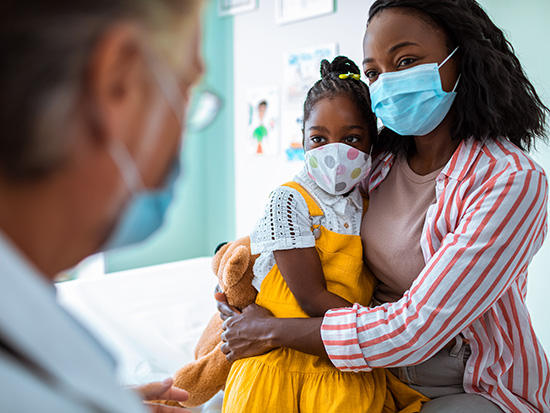Media contact: Adam Pope
 UAB’s MHRC is expanding CEAL’s impact across the state by creating a network of Social Action Champions who are trusted voices in their communities.Ethnic and racial minority communities have been disproportionately affected by COVID-19. The National Institutes of Health funded an effort to provide trustworthy information through active community engagement and outreach to those hardest hit.
UAB’s MHRC is expanding CEAL’s impact across the state by creating a network of Social Action Champions who are trusted voices in their communities.Ethnic and racial minority communities have been disproportionately affected by COVID-19. The National Institutes of Health funded an effort to provide trustworthy information through active community engagement and outreach to those hardest hit.
Using established partnerships, the NIH engaged research teams from across the United States and Puerto Rico to address COVID-19 disparities in underserved communities.
The Alabama Community Engagement Alliance Against COVID-19 Disparities, powered by the University of Alabama at Birmingham Minority Health and Health Disparities Research Center, is expanding CEAL’s impact across the state by creating a network of Social Action Champions who are trusted voices in their communities.
In late December 2021, Alabama CEAL partnered with members of 27 local chapters of national, state, and Black Greek and social service organizations to share information about the COVID-19 vaccine. These organizations share a focus on health: to create movement toward good health using relationships and networking.
“These Black social and service organizations have a powerful reach and impact into Black communities,” said Tiffany Osborne, community engagement director for the MHRC.
Social Action Champions were awarded mini-grants to implement health awareness and vaccine education projects by March 31, 2022. Projects range from a “Health is Wealth” vaccine clinic hosted by the Black Belt Community Development Corporation to a series of virtual forums to discuss COVID-19 precautions, hosted by the Dallas County Zeta Phi Beta chapter. On March 12, MSFace2Face conducted a Women’s Empowerment Workshop at A.G. Gaston Boys & Girls Club, where Celeste Reese-Willis, M.D., spoke on understanding the difference between pandemic and endemic.
“Members of these organizations are movers and shakers within their communities — they are trusted voices,” Osborne said. “And if we’ve learned anything from the pandemic, we’ve learned that people listen to those they trust and with whom they have a rapport.”
An Impactful Network
The Alabama CEAL Social Action Champions include Alpha Kappa Alpha sorority, Alpha Phi Alpha fraternity, Delta Sigma Theta sorority, Kappa Alpha Psi fraternity, Phi Theta fraternity, Omega Psi Phi fraternity, Phi Beta Sigma fraternity, Sigma Gamma Rho sorority, Zeta Phi Beta sorority, The Links, 100 Black Men of America, Black Belt Community Development Corporation, the NAACP Birmingham Metro Chapter, the National Council of Negro Women and MSFace2Face.
Osborne adds that partnering with these prestigious organizations is a great way to use connections to reach a larger audience.
“It truly is a win-win,” Osborne said. “These groups are already working on spreading awareness anyway, and we had the funds to help them reach their goals.”
To learn more about the mission of CEAL, visit sites.uab.edu/ceal.